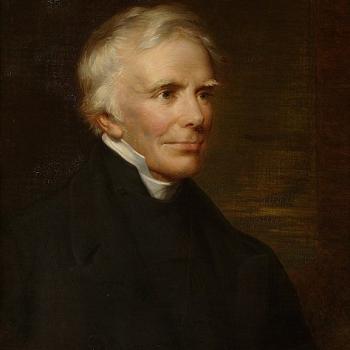
This exchange occurred in the combox of a video by Kenny Burchard, “No Tradition? Fine. NO CHRISTIANITY!” (Catholic Bible Highlights, 9-22-24). I provide the biblical research for this series. Our Protestant friend’s words will be in blue. I have cited all of them. I use RSV for Bible citations.
*****
Traditions are fine as all denominations have them. However, traditions should never add, alter, or delete anything from Scripture.
Traditions can be recorded in writing as well as being orally passed on. There isn’t any distinction on how these are transmitted. Traditions can be transmitted initially in writing and then orally taught; especially for those individuals who were illiterate in ancient times.
Paul wrote letters to certain churches and asked that they pass those writings on to other churches. Also, much of the New Testament writings were in use and recognized as biblical Scripture centuries before the Counsel of Trent formally recognized the Canon. (See Muratorian Fragment, a late 2nd-century-ce fragment of a Latin list of New Testament writings then regarded by Christians as canonical (scripturally authoritative).
Regarding oral Apostolic traditions, you spoke of these traditions without specifically identifying or listing what these traditions are. Which apostle or apostles passed down a specific tradition, and how do we know this? Are there any words of Christ passed on in any oral tradition that were not recorded in Scripture?
***
“traditions should never add, alter, or delete anything from Scripture.”
I agree. Sola Scriptura and sola fide aren’t taught in Scripture (which Protestants always demand) and contradict it. Things like the Immaculate Conception and Bodily Assumption of Mary aren’t explicit in Scripture, but are in harmony with it.
Of course, large parts of the biblical canon were recognized long before Trent, but there were still some serious disagreements right up to the time of the councils of Carthage and Hippo in the 390s. After that, the NT canon remained essentially up until Trent and the Protestant late tradition of decanonizing seven books. See my article: The New Testament Canon is a “Late” Doctrine.
“Which apostle or apostles passed down a specific tradition, and how do we know this?”
We can know some things; e.g., the perpetual virginity of Mary, from early tradition, in addition to biblical indications. I’ve written about that particular topic a lot. Also, episcopacy and hierarchical Church government is written about very early, by people like St. Ignatius of Antioch and Pope St. Clement of Rome. The belief in infant baptism is not explicit in Scripture (though I would argue that it is strongly implicit). St. Augustine and Martin Luther both talk about how it was a tradition passed down, and as such cannot be doubted. This was a major reason why Luther favored capital punishment for Anabaptists.
“Are there any words of Christ passed on in any oral tradition that were not recorded in Scripture?”
Not that I know of. But that doesn’t mean that they didn’t exist and were later lost to history. For example, in Mark 6:34 (RSV) it says, “He began to teach them many things.” But none are recorded in the larger passage. So it’s quite possible that some of that may not be explicit biblical teaching, but one or more of the disciples could have passed it along.
The question for Protestants is: “where does the Bible ever state that all Christian doctrines must be in the Bible?” Right off the bat, the canon of Scripture is not, and so the Church had to authoritatively proclaim it. This notion, called “inscripturation,” is itself unbiblical. See my article: Oral Tradition: More Biblical (Pauline) Evidence (. . . and an Examination of the False and Unbiblical Protestant Supposed Refutation of “Inscripturation”).
***
In short, it does not appear you can answer my question regarding Apostolic traditions.
The difference here is that I know the writings of Scripture to be true and authoritative; as it is the inspired word of God. There is nothing that compares! I can see them, touch them, and read them. Regarding Apostolic traditions, I can neither see, touch nor read them. And unfortunately, whether any of those traditions are true or not, there is simply no way to verify their source or authenticity. How can they possibly be equal to Scripture?
Anything can be said to be an Apostolic tradition … such as the Immaculate Conception and Assumption of Mary. However, these traditions are nowhere to be found in Scripture, nor are they in harmony with Scripture. (The same is true for purgatory)
Sola Scriptura, as you know, means that Scripture is the final authority; not the only authority. As stated above, it is the inspired word of God. This is the very nature and purpose of Scripture. If you must have this spelled out for you in Scripture before you will understand and accept this truth, you are missing the meaning and purpose of Scripture. It is God’s word to us! As I stated in my initial post, you can have traditions, but they cannot add, delete or alter Scripture in any way. (Galatians 1)
You stated that Sola Fide isn’t taught in Scripture. I must disagree. Sola Fide or faith alone is taught throughout Scripture. You are saved by faith in Jesus Christ. That is the message of Scripture. There are numerous, numerous writings that teach this. Please do not belittle Scripture. (If you want to discuss James 2:24, we can do that.)
You also stated there were some serious disagreements by church leaders regarding some areas of the Canon prior to the Councils. That may be true to a point, but the fact of the matter is that the vast majority of the New Testament was in fact recognized as Canon, used, studied and shared by the early churches well before the 390’s. (That’s a long time!) Also, I would argue, the writings of the New Testament became Scripture the moment they were written. They are God breathed and really did not need the blessings of man to make them so. The Councils did not make the Canon. God did! The Councils, after almost 400 years, finally recognized them as such.
Also, I believe the Old Testament Canon was pretty much set in stone by the Jews well before the time of Christ. It did not include ” the Protestant late tradition of decanonizing (these) seven books” . As you are assuredly well aware, the Jewish people did not recognize these books for a variety of reasons and none of these books were ever quoted by Jesus.
I do not mean to sound to argumentative. I can get a little fired up at times. However, I must also follow God’s word and only God’s word. If you can provide irrefutable evidence regarding any Apostolic tradition as being from an actual apostle and is a truth not already recorded, whole or in part, in the New Testament, I could possibly agree with it. But until then I’ll stay with Sola Scriptura.
Thanks for your time and discussion.
***
“In short, it does not appear you can answer my question regarding Apostolic traditions.”
I answered in part, and I will further answer presently.
“The difference here is that I know the writings of Scripture to be true and authoritative; as it is the inspired word of God.”
So do we. That’s no difference. The difference is when Protestants made it the sole infallible authority, which Scripture itself never teaches. Kenny’s latest video (uploaded this day, as I write) addresses this.
“There is nothing that compares! I can see them, touch them, and read them.”
Scripture is very unique. But it doesn’t follow that, just because only the Bible is inspired (i.e., in terms of a written document), that tradition and Church can’t be infallible (a lesser gift). We contend that the Bible teaches both of those things, too. But there is also inspiration beyond the Bible: the prophets spoke God’s inspired word, and the NT teaches that the office of prophet continued in the Church (whenever God speaks through anyone in a prophetic manner, it’s inspired). See my article: Reply To Gavin Ortlund’s 6-Minute Sola Scriptura Defense (Including the Biblical Case for Prophets as Inspired and Infallible Authorities Besides Holy Scripture) [1-26-24].
“Regarding Apostolic traditions, I can neither see, touch nor read them. And unfortunately, whether any of those traditions are true or not, there is simply no way to verify their source or authenticity. How can they possibly be equal to Scripture?”
Again, they are equal in terms of possessing authority, because inspired Scripture says that they are (as a general proposition). The Church, as the guardian of both Sacred Scripture and sacred apostolic tradition, proclaims and verifies specifically which are authentic and which aren’t. Even Protestants were forced to fall back on infallible, authoritative Church teaching when it came to the canon of the Bible. The Bible teaches the infallibility of the Church: 1 Timothy 3:15 = Church Infallibility (vs. Steve Hays) [5-14-20].
Apostolic Succession as Seen in the Jerusalem Council [National Catholic Register, 1-15-17]
C. S. Lewis vs. St. Paul on Future Binding Church Authority [National Catholic Register, 1-22-17]
Were the Jerusalem Council Decrees Universally Binding? [National Catholic Register, 12-4-19]
The Jerusalem Council & Binding Universal Decisions [Catholic365, 11-2-23]
All of these factors are devastating to the unbiblical and anti-biblical tradition of sola Scriptura.
“Anything can be said to be an Apostolic tradition … such as the Immaculate Conception and Assumption of Mary.”
Not “anything.” It has to be in harmony with Holy Scripture.
“However, these traditions are nowhere to be found in Scripture, nor are they in harmony with Scripture. (The same is true for purgatory)”
So you say. But you’re wrong. See:
Sinless Creatures in the Bible: Actual & Potential (Including a Listing of Many Biblical Passages About Sin, Holiness, Blamelessness, Righteousness, Godliness, Perfection, and Sanctity) [10-20-22; greatly expanded on 7-27-23]
25 Bible Passages on Purgatory [1996]
50 Bible Passages on Purgatory & Analogous Processes [2009]
50 Biblical Indications That Purgatory is Real [National Catholic Register, 10-24-16]
11 Descriptive and Clear Bible Passages About Purgatory [National Catholic Register, 5-7-17]
“Sola Scriptura, as you know, means that Scripture is the final authority; not the only authority.”
Yes I know, having written three books on the topic:
100 Biblical Arguments Against Sola Scriptura
Pillars of Sola Scriptura: Replies to Whitaker, Goode, & Biblical “Proofs” for “Bible Alone”
The Bible Tells Me So: A Catholic Apologist Challenges Protestants with Scripture
“As stated above, it is the inspired word of God. This is the very nature and purpose of Scripture.”
No need to reiterate what Catholics have believed from the beginning. You received Scripture from us, historically speaking. Even Luther gave the Catholic Church great credit for that.
“If you must have this spelled out for you in Scripture before you will understand and accept this truth, you are missing the meaning and purpose of Scripture.”
Again, this is not at issue. But for some inexplicable reason, you seem to think that it is. We need not spend valuable time arguing about commonly held premises and beliefs.
“It is God’s word to us!”
Yes it is! Prophets’ words are also God’s words to us. The phrase “word of the LORD” appears 243 times in the Protestant OT (RSV) and in many (maybe even most) instances it is referring to the words of prophets, not the Bible. In 101 of those instances, it reads, “the word of the LORD came to [so-and-so]”: i.e., that it was a direct revelation to a person, as opposed to Scripture.
“As I stated in my initial post, you can have traditions, but they cannot add, delete or alter Scripture in any way. (Galatians 1)”
Of course they can’t add to Scripture or “delete” it or alter it because they are not Scripture, so by definition . . . Once again, sacred apostolic tradition is authoritative and infallible (when deemed to be so by the Church) but not inspired. It’s not Scripture, but it’s always in harmony with what Scripture teaches. For example, the Bodily Assumption is not contradictory to anything we have in Scripture. We know it’s entirely possible because we have examples of other bodily assumptions to heaven, such as Elijah (many think, also Enoch) and those who will rise up to meet Jesus in the air when He returns.
A sinless person or the larger category of a sinless creature is not inconceivable because Adam and Eve were sinless before the fall, and the unfallen angels have always been sinless and always will be. Being in harmony with the Bible is different from being explicitly proven in the Bible.
“You stated that Sola Fide isn’t taught in Scripture. I must disagree. Sola Fide or faith alone is taught throughout Scripture. You are saved by faith in Jesus Christ. That is the message of Scripture. There are numerous, numerous writings that teach this.”
It’s contradicted at least 78 times in the Bible: Salvation via Sanctification & Merit: Bible Proofs (Compendium of 115 Biblical Passages On Catholic Justification, Sanctification, Faith & Works, & Merit: Contrary to Protestant “Faith Alone” Soteriology) [8-26-24; revised and expanded on 9-10-24]
Banzoli’s 45 “Faith Alone” Passages; My 200 Biblical Disproofs [6-16-22]
Sanctification and Works Are Tied to Salvation [National Catholic Register, 9-26-24]
See many many more refutations on my Salvation & Justification web page.
“Please do not belittle Scripture. (If you want to discuss James 2:24, we can do that.)”
It’s hardly belittling Scripture if I can offer up 78 Bible passages that refute faith alone. It would seem, rather, that Protestants are ignoring a great deal of Scripture that contradicts their false doctrine of “faith alone.” Ignoring that much Scripture is belittling it, if anything is. I’ve discussed James 2 many times; e.g., Reply to James White’s Exegesis of James 2 in Chapter 20 of His Book, The God Who Justifies [10-9-13].
“You also stated there were some serious disagreements by church leaders regarding some areas of the Canon prior to the Councils. That may be true to a point, but the fact of the matter is that the vast majority of the New Testament was in fact recognized as Canon, used, studied and shared by the early churches well before the 390’s. (That’s a long time!)”
Yes it was, but there was significant enough disagreement so that it would likely never have become a complete consensus unless the Church declared the canon. No one names all 27 NT books in one place until St. Athanasius in 367. So we can’t prove that any one person knew that the entire NT was canon till some 330 years after Jesus’ death. See: Bible: Completely Self-Authenticating, So that Anyone Could Come up with the Complete Canon without Formal Church Proclamations? (vs. Wm. Whitaker) [July 2012].
“Also, I would argue, the writings of the New Testament became Scripture the moment they were written. They are God breathed and really did not need the blessings of man to make them so. The Councils did not make the Canon. God did! The Councils, after almost 400 years, finally recognized them as such.”
We agree, and that’s what we teach. See: Does the Catholic Church Think it is Superior to the Bible? [9-14-15]
“Also, I believe the Old Testament Canon was pretty much set in stone by the Jews well before the time of Christ. It did not include “the Protestant late tradition of decanonizing (these) seven books”. As you are assuredly well aware, the Jewish people did not recognize these books for a variety of reasons and none of these books were ever quoted by Jesus.”
See:
Deuterocanonical References (?) in the Gospels [7-13-05]
Deuterocanonical References (?): Acts-Ephesians [7-27-05]
Deuterocanonical References (?): Philippians-Revelation [8-10-05]
“I do not mean to sound to argumentative. I can get a little fired up at times.”
No problem! I love debate. I so rarely find Protestants willing to debate, so it’s a real pleasure.
“However, I must also follow God’s word and only God’s word.”
The Bible teaches an authoritative tradition and Church in addition to itself. The “three-legged stool” rule of faith is an explicitly biblical doctrine.
“If you can provide irrefutable evidence regarding any Apostolic tradition as being from an actual apostle and is a truth not already recorded, whole or in part, in the New Testament, I could possibly agree with it. But until then I’ll stay with Sola Scriptura.”
That’s an arbitrary demand, which is not in the Bible; so it’s simply a tradition of man that you have adopted. As such, it’s neither infallible nor even authoritative; therefore there is no reason for anyone to follow it. Nor is “inscripturation” a biblical concept. It’s a Protestant tradition of men, just as sola fide and sola Scriptura are.
“Thanks for your time and discussion.”
Thank you, too. I had a lot of fun. And I hope the dialogue will continue!
Photo credit: self-designed book cover of my own self-published book. [see link for much book info. and all purchase options]
Summary: In-depth reply to a Protestant in which I discuss many biblical passages proving that the rule of faith, as described in the Bible itself, is Bible-Tradition-Church, not sola Scriptura.













